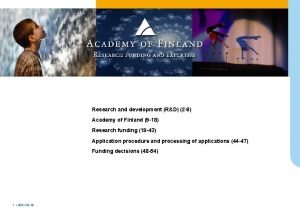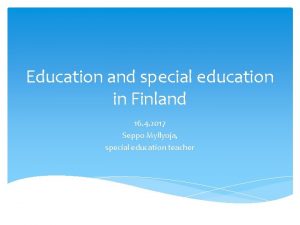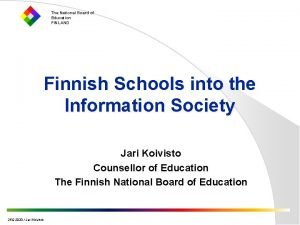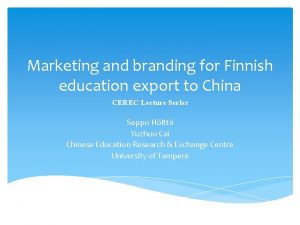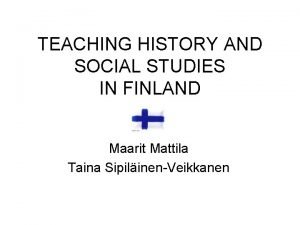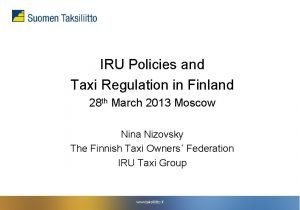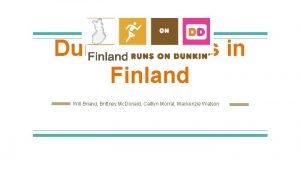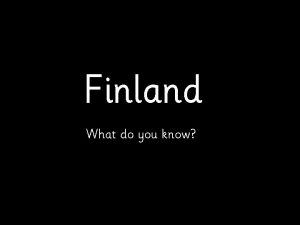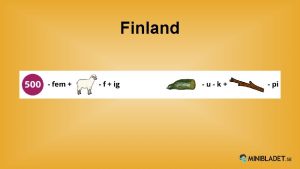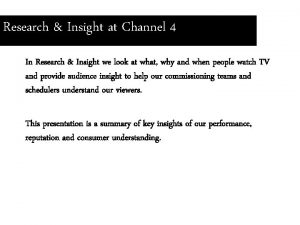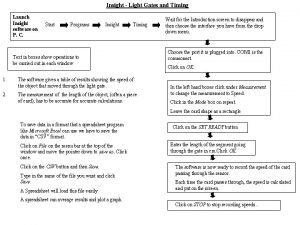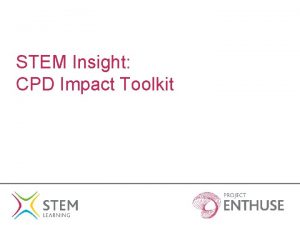Insight into Science Education in Finland Cf SC











- Slides: 11

Insight into Science Education in Finland Cf. SC Merike Kesler 17. 9. 2007 in York

Characteristics of Finland Turkey 91 • Small population South Korea 492 population density 16 inh. per km² • Nature, environment and forest industry forest tool 60 years ago forest tool today

Characteristics of Finland • LEARNING IN NATURE • Field education and field works - compulsory in basic education in all forms

Science education and teaching BROAD SENSE • scientific knowledge • critical and rational thinking • skills for future development NARROW SENSE • physical sciences • life sciences • mathematics • computer science and technology All subjects Basis for full life Basis for science literacy

Teacher training • Higher university education – Master's degree • Science Educators - class teacher (forms 1 -6) subject teacher (forms 7 -9 and secondary education) The Faculty of Behavioural Science Teacher Training Schools Subject departments

Teacher training * Association for teachers biology and geography * Association for teachers physics, chemistry and mathematics 95% of all teachers • Work networks after graduating - meeting place for exchange of ideas, materials and experiences - co-operation - interaction between colleagues which promotes interest and enthusiasm - continuing professional development

Informal science education • Role of out-of-schools science education organisations - to get positive contacts in science - to increase children’s interest and teacher willingness to teach science - links between school science and everyday science Children and young people have a right to varied hobbies and interests Science clubs and camps provide activities for children within a safe and professional environment

Problems and views in future • Problem Next decade the amount of inhabitants over 65 years is increased by 50 % • Views - Young people into working life sooner - Shorter studying times - The amount of knowledge increases

Problems and views in future • • where was the knowledge produced by whom for what purpose what will be the potential consequences for the surrounding society at large www. yle. fi

Problems and views in future • Solution - new subject for basic education SCIENTIFIC MEDIA EDUCATION - science education must be more and more integrated in other subjects

Kiitos! Thank You for You Attention!
